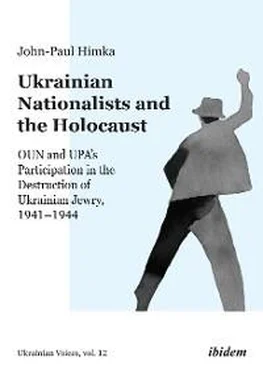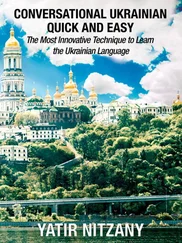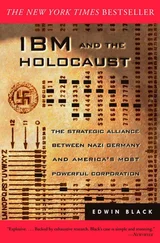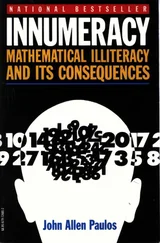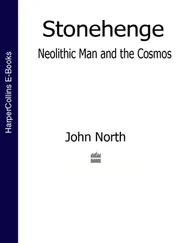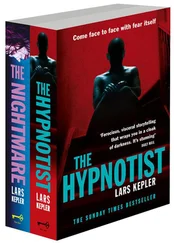The working group was based in the Institute of the History of Ukraine in the National Academy of Sciences of Ukraine in Kyiv. Another, younger group of historians, based in the academy’s Institute of Ukrainian Studies in Lviv, embraced OUN and UPA even more forthrightly. The leader of the Lviv group was Volodymyr Viatrovych, who was just twenty-five when he founded the Center for the Study of the Liberation Movement in 2002. Viatrovych remained director of the Center until 2008 when he was appointed head of the archive section of the Ukrainian Institute of National Memory, established by President Yushchenko. Shortly thereafter Viatrovych was also appointed head of the SBU archives. He became even more influential after the Euromaidan and headed the Ukrainian Institute of National Memory from 2014 to 2019. He consistently promoted the cult of OUN and UPA, downplaying their wartime crimes. 141He and his associate Ruslan Zabily, who directs the pro-OUN Lontsky prison museum in Lviv, 142have excellent connections with the Ukrainian diaspora in North America. They have spoken a number of times at the Harvard Ukrainian Research Institute and the Canadian Institute of Ukrainian Studies; both of these institutes have partnerships with the Center for the Study of the Liberation Movement. 143
Of the publications of the Lviv group, the most relevant to our topic is Viatrovych’s book on OUN’s attitude toward Jews, which came out in 2006. 144It sought to exonerate OUN and UPA from accusations of antisemitism and participation in the Holocaust, but it had serious flaws as a scholarly monograph. It handled sources in a one-sided manner, rejecting the authenticity or relevance of those that confirmed OUN’s hostility to Jews while accepting as valid a fabricated memoir by an alleged Jewish member of UPA. 145The latter was the only alleged Jewish survivor testimony that the book cited. It cited no sources or scholarly literature in German or English, nor did it take into account contextual or comparative factors that would have helped illuminate the issues. Also, it was apparent that Viatrovych could not recognize antisemitism when it appeared in OUN texts. 146Viatrovych’s book did, however, contribute to initiating a larger discussion about OUN and the Jews, and it published as an appendix two OUN texts on the subject.
Other historians working within a generally nationalist paradigm were more careful scholars than Viatrovych. In particular, Andrii Bolianovsky, also based in Lviv, published a number of useful, well researched articles on Galicia under German occupation and—most important—two detailed monographs on Ukrainian military and police units in German service. 147Moreover, other Lviv-based historians have written quite critically of OUN, including Marta Havryshko, who has published on the situation of women in UPA, and the prominent historians, essayists, and bloggers Yaroslav Hrytsak 148and Vasyl Rasevych. 149Oleksandr Zaitsev, at this writing head of the history department at the Ukrainian Catholic University in Lviv, has done particularly valuable work on OUN prior to 1941, including a detailed survey of integral nationalist ideology 150and the publication of a text by a leading member of OUN advocating the ethnic cleansing of Ukraine. 151
At present, some of the best researched and frankest discussion of OUN and Holocaust perpetration is being conducted in Ukraine by scholars younger than all the other Ukrainian scholars mentioned so far. An outstanding figure is Yuri Radchenko of Kharkiv, who knows all the languages necessary for Holocaust research, not only Slavic and Western languages but Hebrew and Yiddish as well. He has researched the Holocaust in Kharkiv and the Donbas and the memory politics surrounding the nationalists and their collaboration in the Holocaust, and he has broken new ground by working on the Melnyk wing of OUN in relation to the Holocaust. 152Other younger, up-and-coming scholars are doing exciting work too, though much of what they have discovered has so far been presented only in unpublished papers. Andrii Usach started his scholarly career in the pro-OUN Center for the Study of the Liberation Movement in Lviv, but left that organization and now is assembling the most intimate portraits yet of Ukrainian Holocaust perpetrators. 153Roman Shliakhtych of Kryvyi Rih has also been working on local perpetrators, particularly Ukrainian policemen in German service. 154These excellent young historians—and I am sure there are more of whom I am unaware—are certain to redefine the contours of Ukrainian historiography on OUN and UPA and their relation to the Holocaust. But it is not just young historians who are making breakthroughs. Two older historians from Ternopil, Oleh Klymenko and Serhii Tkachov, have done tremendous work in the archives of their city, producing two detailed monographs on the Ukrainian police in the Ternopil and Kremenets regions; both monographs treat both police involvement in the Holocaust and OUN involvement with the police in an open and balanced manner.
Finally, it is necessary to mention that the rehabilitation of OUN and UPA attracted criticism from political circles in Ukraine that took a more positive view of Russia and the Soviet past, notably the former Party of Regions. One of that party’s deputies to the Ukrainian parliament, Vadym Kolesnichenko, proposed a law in May 2013 to ban the glorification and rehabilitation of the nationalists, whom he identified as fascists and Nazis. 155Kolesnichenko and his “International Antifascist Front” contributed nothing to the scholarship on OUN and UPA, but in 2012 and 2013 they published Russian and Ukrainian translations of articles written by Western historians John-Paul Himka (i.e., this author), Grzegorz Rossoliński-Liebe, Per Anders Rudling, and Timothy Snyder. None of these scholars had agreed to have their articles published by Kolesnichenko and had in fact specifically declined to be published by him. 156This was a clear case of the political instrumentalization of critical scholarship on the Ukrainian nationalists.
Russian propaganda has also instrumentalized the scholarship of what I have termed the post- Neighbors consensus. Even before, but particularly since 2014, when Russia invaded Ukraine, seized Crimea, and began a hybrid war in the eastern Donbas, the Russian state under Putin has tried to link contemporary Ukrainian aspirations for independence from Russian tutelage with fascism. Yet serious scholarly monographs relevant to our theme have appeared in Russia within the framework of Russian historical politics, notably Aleksandr Diukov’s study of OUN’s attitude to Jews, its “second-rank enemy,” 157and Aleksei Bakanov’s more nuanced study of the national question in OUN ideology. 158
1Friedman, Die galizischen Juden .
2Aleksiun, “Invisible Web.” Aleksiun, “Philip Friedman.”
3I have used the second, expanded edition of 1947 (Friedman, Zagłada ) as well as the English translation of the 1956 Hebrew version (Friedman, “Destruction”).
4He noted correctly at one point that the Ukrainian militia was disbanded “and in its place was organized the Ukrainian auxiliary police under German direction,” but otherwise used the terms militia and auxiliary police interchangeably. Quotation from Friedman, “Ukrainian-Jewish Relations,” 181.
5Friedman, Zagłada , 7.
6Friedman, “Ukrainian-Jewish Relations,” 181.
7“In letters exchanged with fellow Jewish historians, Friedman expressed particular interest in exploring the attitudes of the Ukrainian leadership and military organisations, especially The Ukrainian Insurgent Army (Ukrayins’ka Povstans’ka Armiya, UPA) and their collaboration in the mass murder of the Jews.” Aleksiun, “Invisible Web,” 158. Aleksiun specifically cites a letter of Friedman to Szymon Datner, 30 April 1958.
Читать дальше
